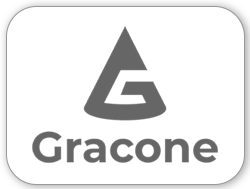
Many engineers prefer online courses over live presentations. Online courses provide the advantage of giving the engineer the flexibility to earn PDH credit on his schedule. Offering free online courses is a great way to establish credibility and create goodwill with your existing and prospective clients. However, delivering online courses for PDH credit is no small feat. You’ll need to develop the content and host it online, develop an online registration system, create and deliver quizzes using automated grading functionality, and generate certificates of completion.
Before you register your first engineer, you need to understand the boards’ rules for issuing PDH credit. PDH credit is mandatory for PE license renewal in 43 states and the District of Columbia. Each board has a different set of rules. Note that some state boards limit the amount of PDH credit that can be earned by engineers using online courses. For more information on this subject, see how to award PDH credit.
You will need to decide whether you want to build your own learning management systems (LMS) or use a commercial provider to deliver your online courses. The process of building a learning management system (LMS) from scratch is too involved to cover in this space and attempting to cover the different commercial LMS solutions here is futile given the sheer number of them.
I will focus instead on two areas of discussion: minimum LMS requirements and content development.
Minimum LMS requirements
Below is a list of the minimum features needed for an automated LMS capable of delivering asynchronous online courses to engineers for PDH credit.
Additionally, you will need to provide a support method to answer user questions and resolve technical issues. User support can either be integrated into the LMS or handled externally (i.e., email or phone support).
Given the complexity and expense of developing and maintaining an LMS, you may want to consider outsourcing this service. Gracone provides online course hosting on your own branded portal site. Our solution includes all the features listed above. Additionally, we are an approved PDH provider in all states, so you can avoid the arduous process of getting state board approvals if we issue co-branded certificates to your students.
However, if you want to issue certificates solely in your own name, we can help you secure all the required state board approvals. See PDH program certification.
Content Development
Developing course content is a time-consuming endeavor, but there are shortcuts you can take. First, look within your organization to see what resources you already have. Sales presentations, brochures, whitepapers, blog posts, podcasts, ebooks, newsletters, technical articles, informational videos, and user manuals are all potential sources of content (both text and graphics).
As for bringing all that content together and repurposing it, again, look within your organization. Do you have engineers, junior salespeople, content writers, and graphic designers that can work together to create an online course? If not, consider outsourcing the work. Gracone has an experienced content development team that can help you.
There’s another option if you are already hosting lunch & learns or webinars. Record the sessions. The recorded video can serve as the online course. You just need to create a quiz based on the content in the presentation.


